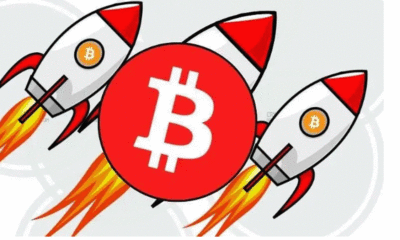The cryptocurrency market has been a subject of intense scrutiny and fascination in recent years, with digital assets like Bitcoin, Ethereum, and Dogecoin capturing the attention of investors, traders, and the general public. One of the defining characteristics of this market is its volatility, which refers to the rapid and unpredictable changes in asset prices. In recent times, the cryptocurrency market has experienced a surge in volatility, leading to significant fluctuations in the value of digital assets and raising questions about the stability and sustainability of this emerging financial landscape.
Volatility in the cryptocurrency market can be attributed to a variety of factors, including regulatory developments, market sentiment, macroeconomic trends, and technological advancements. Regulatory scrutiny, in particular, has played a significant role in influencing market dynamics, as governments and financial institutions around the world grapple with how to regulate and integrate cryptocurrencies into the existing financial system. The uncertainty surrounding regulatory frameworks and potential crackdowns on cryptocurrencies has led to increased volatility as investors react to the changing landscape.
Market sentiment also plays a crucial role in driving volatility in the cryptocurrency market. Sentiment indicators, such as social media chatter, news coverage, and investor behavior, can have a profound impact on asset prices. Positive news, such as the adoption of cryptocurrencies by major companies or institutional investors, can lead to surges in prices, while negative news, such as security breaches or regulatory challenges, can trigger steep declines. The rapid dissemination of information in the digital age amplifies the impact of sentiment on market volatility, creating a fast-paced and dynamic trading environment.
Moreover, macroeconomic trends and global events can influence cryptocurrency prices and contribute to market volatility. Economic indicators, geopolitical tensions, and monetary policy decisions can all have implications for the value of digital assets. For example, the recent inflation concerns and interest rate hikes in traditional financial markets have spilled over into the cryptocurrency market, leading to increased volatility as investors reassess risk and adjust their portfolios accordingly.
Technological advancements and innovations within the cryptocurrency ecosystem can also impact market volatility. The development of new blockchain technologies, decentralized finance (DeFi) platforms, and non-fungible tokens (NFTs) introduce novel use cases and investment opportunities, driving both excitement and uncertainty in the market. The fast-paced nature of technological innovation in the cryptocurrency space can lead to rapid price movements as investors respond to changing trends and developments.
In conclusion, the surge in volatility in the cryptocurrency market reflects the dynamic and evolving nature of this emerging asset class. While volatility brings opportunities for profit and excitement for traders, it also carries risks and challenges for investors seeking stability and predictability. Understanding the factors influencing market volatility and developing risk management strategies are essential for navigating the complexities of the cryptocurrency market and harnessing the potential of digital assets in the long term. As the market continues to mature and evolve, managing volatility will remain a key consideration for participants in the cryptocurrency ecosystem.





 Videos8 months ago
Videos8 months ago
 Videos8 months ago
Videos8 months ago
 Videos8 months ago
Videos8 months ago
 Videos8 months ago
Videos8 months ago
 Entertainment9 months ago
Entertainment9 months ago
 World News8 months ago
World News8 months ago



